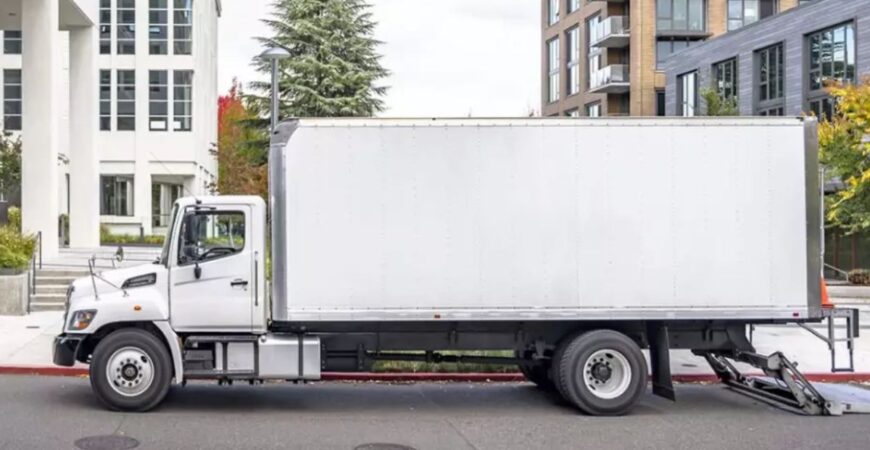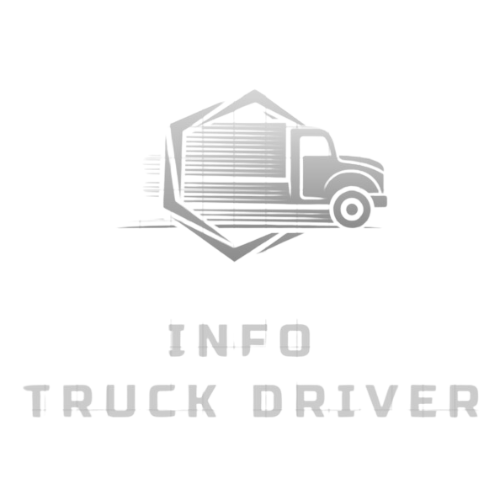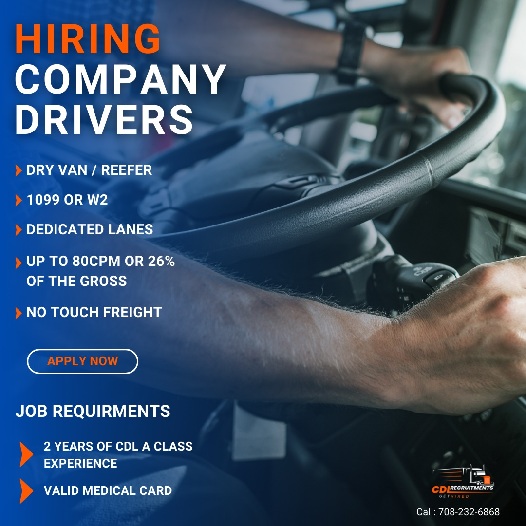CDL Requirement for Driving Box Trucks: Understanding the Regulations
Box trucks, commonly used for local deliveries and small-scale transportation, are a prevalent sight on roads.
However, understanding the requirements for driving these vehicles, particularly whether a Commercial Driver’s License (CDL) is necessary, is crucial for individuals considering employment in this sector.

What is a Box Truck?
A box truck, also known as a cube truck or a straight truck, is a medium to large-sized vehicle characterized by its enclosed cargo area. These trucks typically range from Class 3 to Class 7 in terms of weight classifications.
CDL Overview:
A CDL is a specialized driver’s license required to operate commercial vehicles above a certain weight or carrying specific types of cargo. The need for a CDL depends on the vehicle’s weight, the type of cargo being transported, and the intended use of the vehicle.
CDL Requirements for Box Trucks:
In the United States, the requirement for a CDL to drive a box truck depends on various factors, primarily the weight classification of the vehicle:
- Weight Classifications: CDL requirements are based on the Gross Vehicle Weight Rating (GVWR) of the truck. Box trucks falling within Class 3 (GVWR between 10,001 and 14,000 pounds) or higher typically necessitate a CDL for operation.
- State Regulations: State-specific regulations might vary regarding CDL requirements for box trucks. Some states might mandate a CDL for box trucks above a certain weight threshold, while others might have different criteria or exemptions.
Exceptions and Variations:
Certain exceptions or specific circumstances might exempt drivers from needing a CDL for operating box trucks:
- Non-Commercial Use: If the box truck is used for personal purposes or non-commercial activities, a CDL might not be necessary in some states, even if it falls within the weight classifications requiring a CDL for commercial use.
- Intra-State vs. Inter-State Travel: CDL requirements might differ for drivers operating solely within the boundaries of a single state (intra-state) compared to those conducting cross-border or inter-state transportation.
Considerations for Employers and Companies:
Businesses employing drivers for box trucks must ensure compliance with CDL regulations. Failure to do so can result in penalties and legal repercussions. Employers should verify the specific CDL requirements in their state and for their intended use of the box trucks to ensure compliance.
Importance of CDL Compliance:
Having the appropriate CDL for driving box trucks is crucial for several reasons:
- Legal Compliance: Abiding by CDL regulations ensures legal compliance and avoids penalties or fines for driving without the necessary license.
- Safety Standards: CDL requirements are designed to ensure that drivers possess the necessary skills and knowledge to operate larger vehicles safely, reducing the risk of accidents on the road.
- Insurance and Liability: Operating a box truck without the required CDL can invalidate insurance coverage and potentially lead to increased liability in case of accidents or incidents.
While specific regulations regarding the need for a CDL to drive a box truck vary based on weight classifications and state-specific guidelines, drivers should be aware of the requirements in their region.
Compliance with CDL regulations is essential not only for legal adherence but also for safety, insurance coverage, and reducing liability risks associated with operating commercial vehicles.


